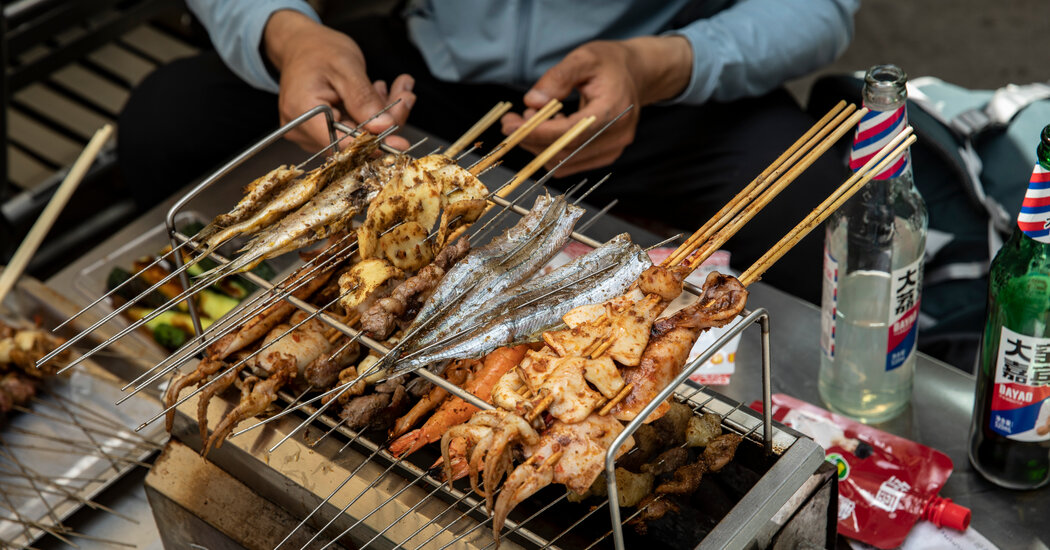The flame-shaped neon archway was visible from miles away, which was good since there was little other reason for anyone to be in that part of town, an expanse of fields outside an industrial city in eastern China. The lights flickered between icy blue and red-hot, leaping toward the night sky beside a jumbo sign: “Zibo Barbecue Experiential Ground.”
And what an experience awaited. Inside this Coachella for barbecue, visitors could pose with a mascot dressed like a meat skewer. They could watch a concert against an LED backdrop of radiating flames. They could eat from one of the hundreds of grills scattered across the grounds the size of 12 football fields — if they waited hours for a table, and if their chosen meat purveyor hadn’t run out of food.
Zibo, a once-obscure chemical manufacturing city in Shandong Province, has suddenly strangely — thanks to, of all things, barbecue — turned into China’s hottest tourist destination.
This city of 4.7 million received 4.8 million visitors in March, after it began attracting notice on social media. During a public holiday earlier this month, a Zibo vegetable market was more popular than the Great Wall, according to a mapping service. High-speed rail tickets from Beijing sold out one minute after their release.
The local government has set up 21 buses to ferry visitors from the train station directly to barbecue restaurants. They erected the barbecue festival on the site of a sprawling seafood market, the only place big enough to host 10,000 people.
“We’ve all had good food before, but this kind of hustle and bustle, this warmth, is hard to find,” said Zhang Kexin, a college senior who, within half an hour of arriving in Zibo during the recent holiday, bought six souvenir tubs of pan-fried crackers, another local specialty.
Ms. Zhang had traveled 500 miles from Shanxi Province — not a journey she had ever considered before, though Zibo was a friend’s hometown. “I thought it seemed like a very ordinary place,” she laughed.
The question of why, exactly, this ordinary place took off has absorbed seemingly all of China, with officials in other cities even sending research teams to Zibo to try and emulate its success. Most explanations attribute the craze’s origins to college students, some of whom posted on social media about the joys of the local barbecue style. Diners grill their own skewers on tabletop charcoal stoves, which lends the meal a D.I.Y. feel, and wrap them in a local specialty…
Click Here to Read the Full Original Article at NYT > Travel…
